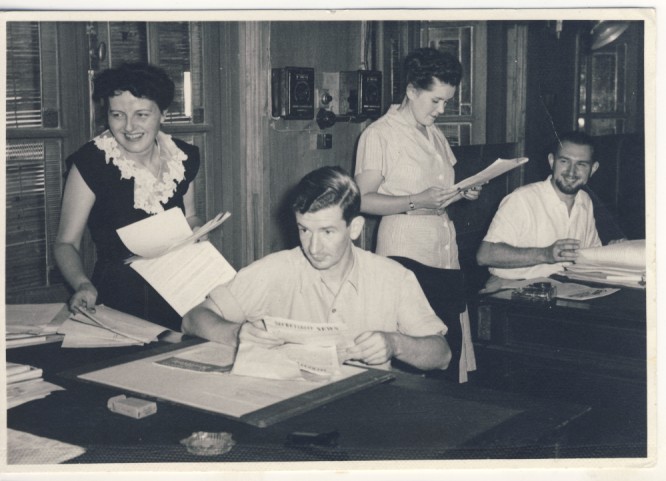
Historical Commission of Inquiry: a new opportunity for learning

Hi, I’m Ben Osborn, a Simulations Director with the American Model United Nations Secretariat. I am excited to have been named as one of the Simulation Directors for AMUN’s newest simulation: a Historical Commission of Inquiry. The Commission (COI) will have a unique purview, different from any other simulation at AMUN, which means unique opportunities for representatives to interact with United Nations functions during the Conference.
What are Commissions of Inquiry?
At the United Nations, COIs are fact-finding bodies used to investigate specific international issues and provide recommendations to the body that establishes it. At AMUN we will have a single body simulating two Commission mandates from the Security Council in 1948: the United Nations Commission for India and Pakistan and the United Nations Commission for Indonesia.
Representatives participating in the COI will
- Gather information about the issues before them.
- Call witnesses to speak, provide testimony or give reports before the Commission.
- Craft interim reports back to the Security Council to keep it apprised of the Commission’s progress.
- Produce a final written report on each topic.
Historically, Commissions have been given a wide latitude in how they conduct their business, and we will preserve that in this simulation. There will be ten representatives on the COI, and they will determine how to make decisions on the work before them, including how to reach consensus in their reports, who should be called before the Commission and in what order, and the general structure of the final reports.
One unique feature of the Commission of Inquiry is that it is staffed by independent experts, rather than government representatives. We will simulate this at AMUN, so representatives will retain the national identity of their school’s delegation, but will serve as individuals on the Commission.
Who should apply?
As a fact-finding body set in 1948, representatives with a love of history, research and writing will find particular success in the Commission. Representatives with a strong understanding of international relations will also enjoy the Commission, as the body weighs testimony from disputing parties; the process of fact-finding is not always straightforward, as the parties involved have competing political interests. Diplomacy will also be essential, as the Commission builds consensus in its reporting and must convince parties to cooperate with the Commission. We also recommend the Commission to anyone who has has participated in one of AMUN’s reporting-writing simulations in the past and who has enjoyed the experience. This might also be an interesting simulation for someone who has served as a Justice on the International Court of Justice and is looking for a similar experience, though without the legal element.
Why Simulation Directors?
Like Security Council simulations, AMUN will be staffing the COI with Simulation Directors. As a Simulation Director I am, of course, incredibly excited about this.
To more accurately simulate the fact-finding work of COIs, we will also simulate how the world around the Commission changes as it conducts its business. Like they do for the Security Council simulations, Simulation Directors will be responsible for determining how the world reacts to the Commission’s work.
This means there will be a sense of time moving forward during the simulation. At times, different witnesses may be available to be called for testimony before the Commission. The Security Council, and other involved or interested parties, may also respond to any interim reports produced by the Commission. The COI’s final reports will have a direct impact on how the Security Council moves forward. Representatives in the Commission can expect a robust simulation of the international world of 1948 and also be able to see their impact on that world.
How do I apply?
Applications will be available on the AMUN website.
As part of forming the two Commission topics we are simulating this year, each party in the selected disputes nominated a country to represent them on the Commission. For our two topics, the Commission already has Representatives from the following countries assigned: Argentina, Australia, Belgium, and Czechoslovakia (Slovakia).
There are a few additional restrictions and requirements on COI applications:
- The five Permanent Members of the Security Council may not seat a representative on the COI.
- Only countries which were Member States of the United Nations at the beginning of 1948 may seat a Representative on the Commission. A list of eligible delegations is also included as a drop-down menu the application form.
- Each school may seat only one representative on the Commission.
All of this means that there are only six slots available to be assigned via application. Be sure to complete the application as soon as possible; slots will be assigned on a first-come-first-served basis to applicants who meet all the criteria and who submit complete applications. Get your application in before all the slots are taken!
Keep Up With The Accords
More to read
The AMUN Accords is a premier resource for fact-based Model United Nations simulations. We are always looking for new contributors. Want to write for the AMUN Accords? Check out out the submission guidelines and then get in touch!


